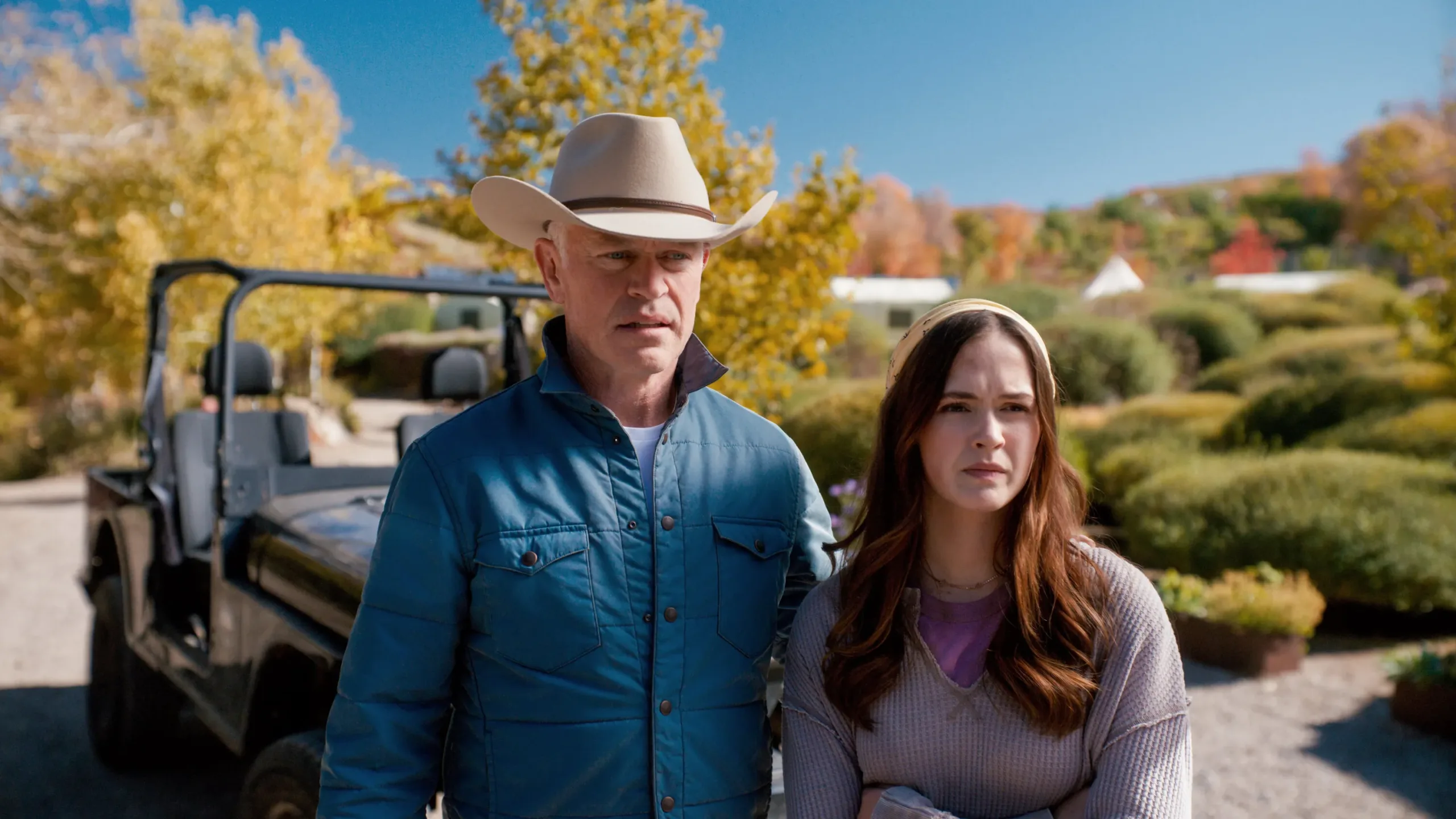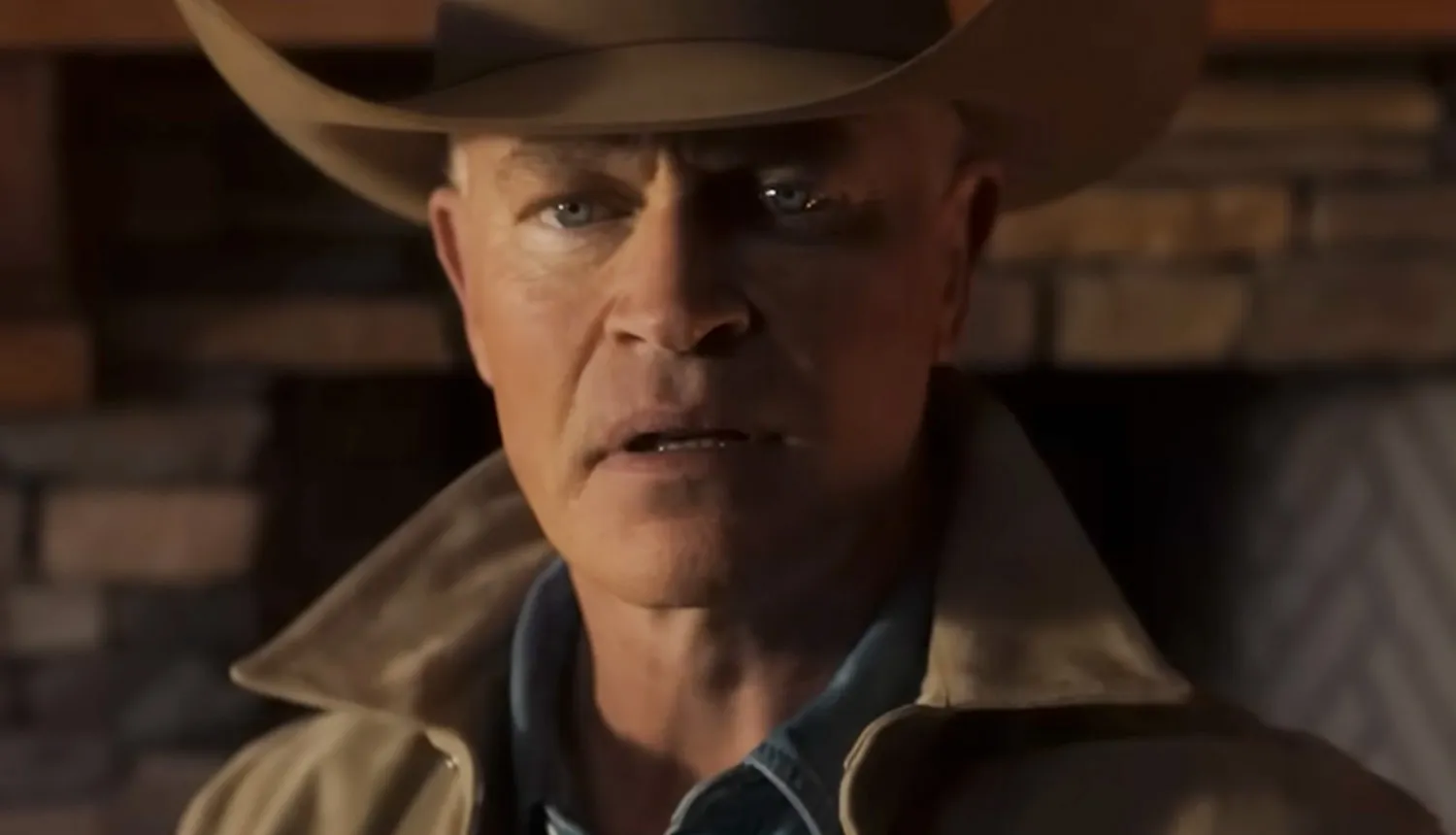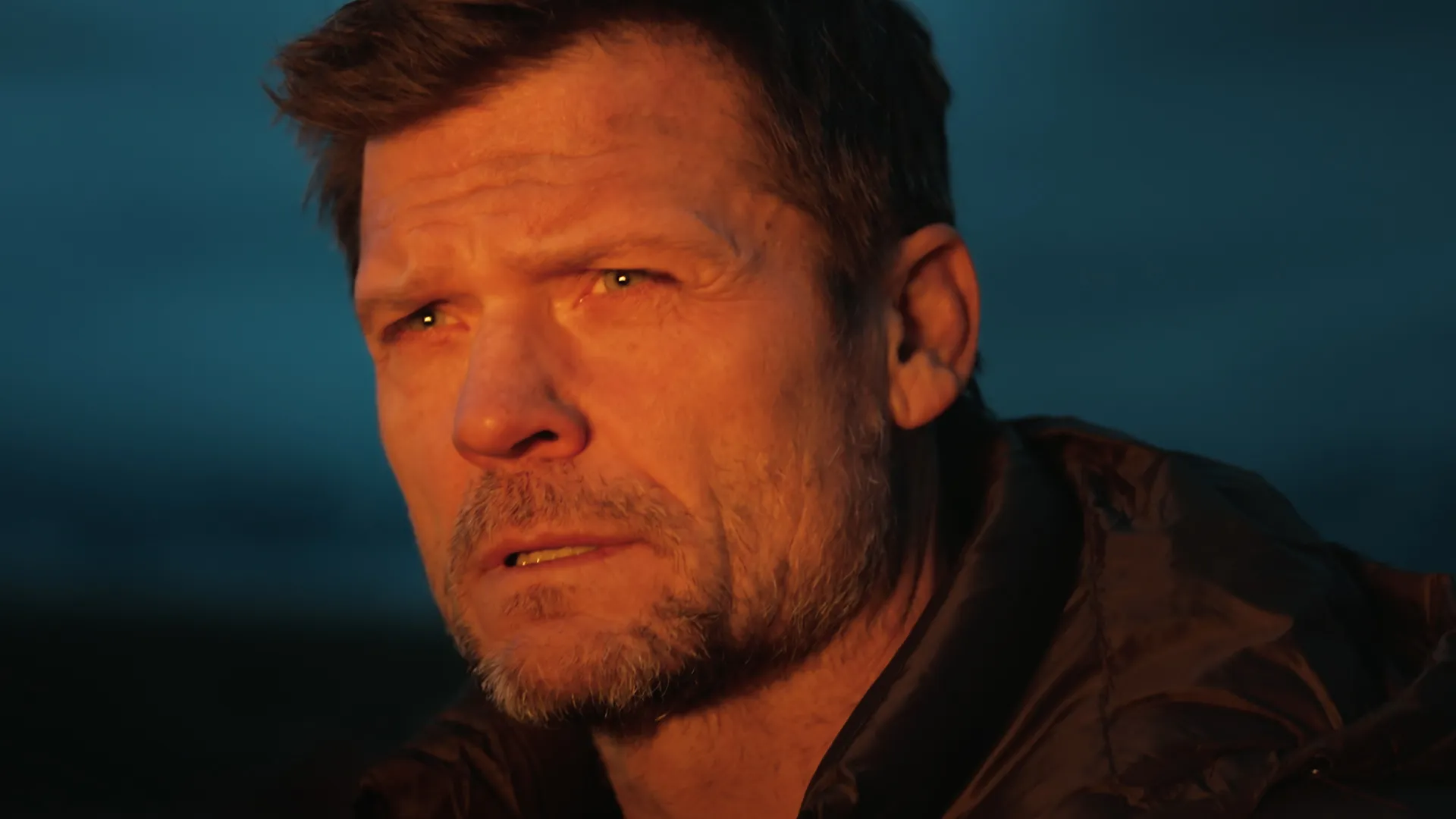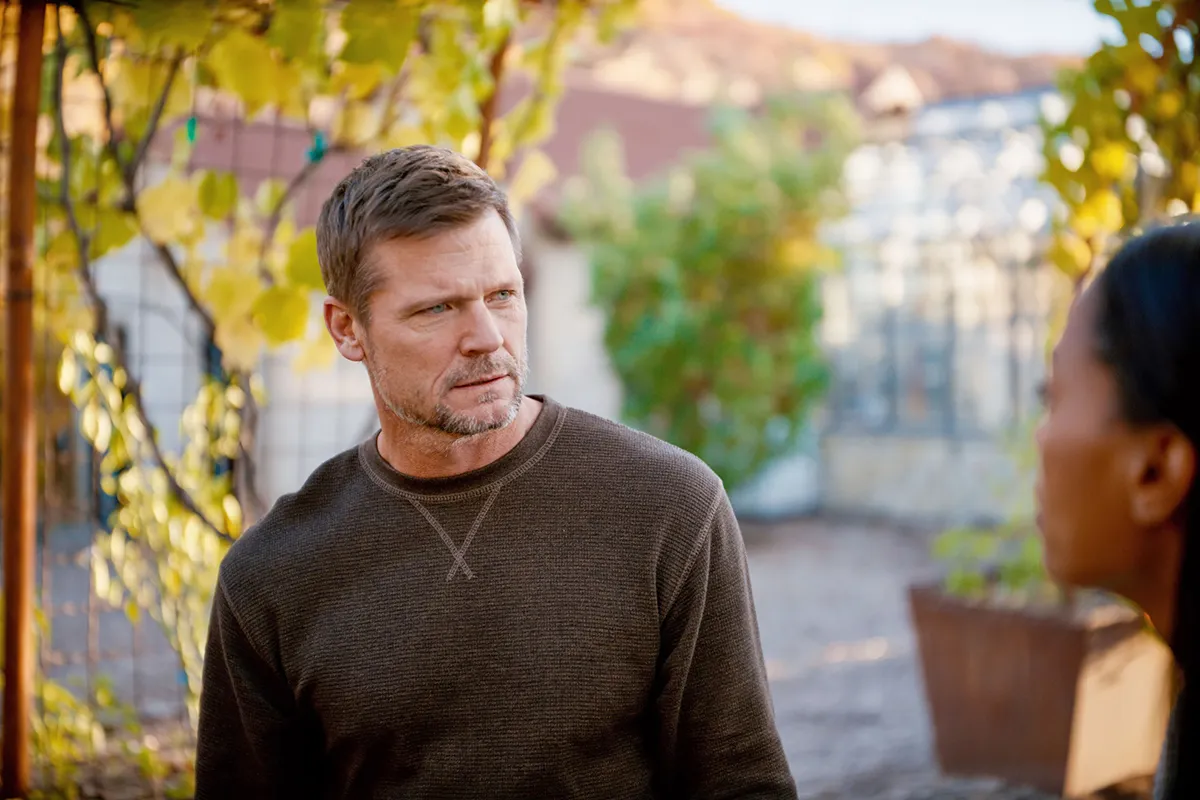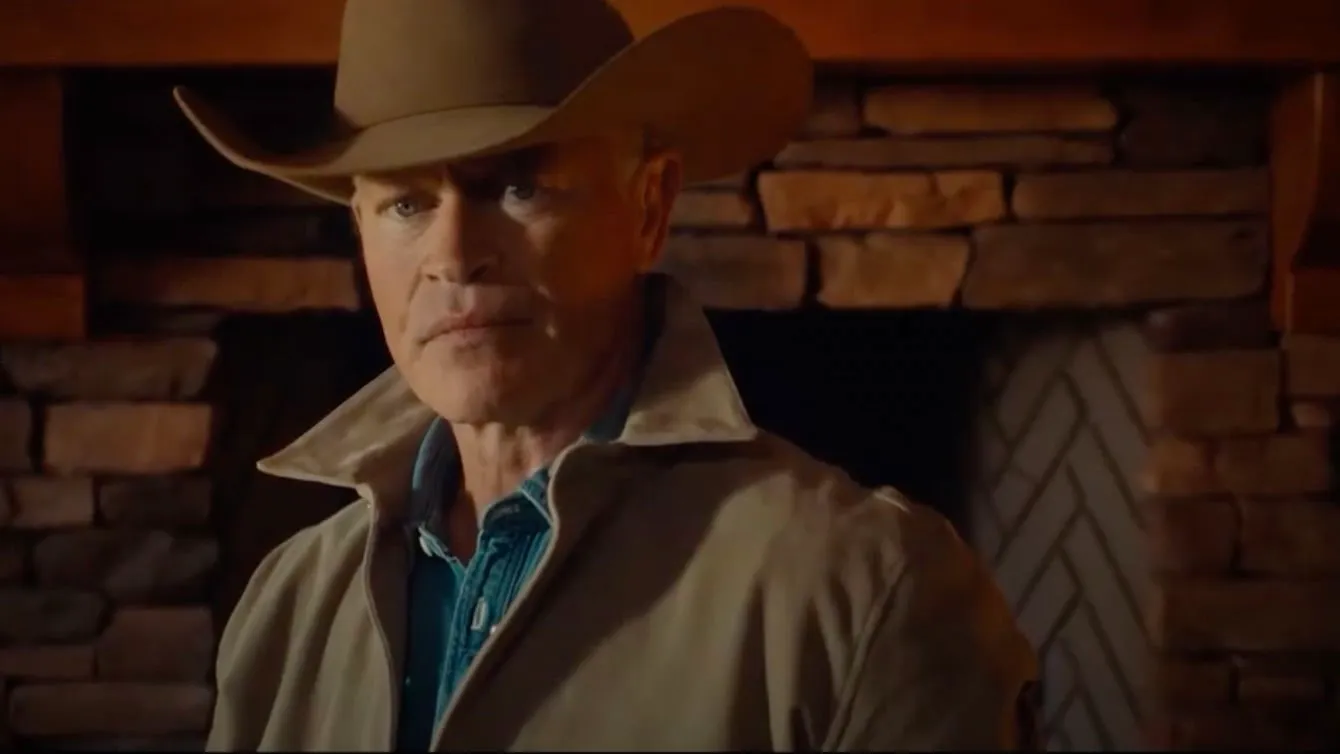In an era when the fear of disaster feels more apparent, “Homestead” emerges as a strange artifact of our times, wrapped in the frightening aesthetics of a faith-based narrative. Imagine a world destroyed by a nuclear explosion, with chaos unfolding like a black flower. The film, directed by Ben Smallbone, transports us to this hazardous world where survival is more than just a matter of resources; it is also about moral quandaries that challenge our humanity.
Neal McDonough plays Ian Ross, a modern-day patriarch whose huge estate serves as a stronghold against uncertainty. Adapted from Jeff Kirkham and Jason Ross’s “Black Autumn” series, “Homestead” aims to encourage thinking while exploring the complexities of survival. However, it frequently trips over its ambition.
Angel Studios expands its horizons by combining survival fiction with a moral compass navigating altruism versus self-preservation. As I ponder these themes, I challenge my own biases: Am I dismissing its sincerity because of its faith-based roots? In investigating “Homestead,” I find myself drawn into a discussion about how we develop narratives around personal and societal disasters.
The Echoes of Survival in “Homestead”
“Homestead” begins with a visceral jolt: a nuclear bomb explodes off the coast of California, heralding chaos and sending shockwaves across the country. I struggled with the sheer weight of such an occurrence, the kind of disaster that feels all too probable in our current uncertain climate.
The film rapidly changes to the Ross family, led by the steadfast Ian Ross, whose well-stocked mansion is a testament to foresight in a world rushing toward disaster. Neal McDonough embodies Ian with parental authority and underlying unease, creating a character who feels both heroic and tragically damaged.
As the narrative progresses, we see a frenzied inflow of families seeking refuge at Homestead, drawn by the promise of protection among the chaos. The fight between altruism and self-preservation is a tension that speaks to me.
Ian’s wife, Jenna, represents the compassionate voice encouraging him to share their resources, whereas Ian’s pragmatic approach frequently clashes with the needs of the impoverished family outside their gates. The film depicts this moral conundrum with an intensity that felt extremely personal, recalling my reflections on being kind in the face of scarcity.
Conflict simmers within the compound as opposing ideas clash, revealing the delicate fabric of a distressed community. The arrival of military and civic officials complicates matters even more, adding power dynamics that threaten to unravel the established weak alliances. How do we navigate our instincts for survival when our humanity is at stake? I found myself questioning. These concerns linger in the air in “Homestead,” disturbing and unanswered, mirroring the uncertainty in our existence.
The Complexity of Connection in “Homestead”
Ian Ross, a character who embodies the image of the paranoid survivalist, is at the core of “Homestead” and feels profoundly genuine in his flaws and worries. Ian, played by Neal McDonough, is more than just a guy armed with supplies and weapons; he is a parent, a husband, and a reluctant leader dealing with the consequences of his decisions.
Although admirable, his drive to protect his family is laced with selfishness, raising troubling concerns about survival’s morality. I reflected on myf-preservation tendencies—how far would I go for safety, and at what cost to my humanity?
Dawn Olivieri’s Jenna Ross contrasts Ian’s rigidity. Her sympathetic nature adds warmth to the narrative and embodies the idea that giving and survival may coexist. Jenna’s struggle to reconcile her desire to serve people with Ian’s cold calculations is keenly felt. In her, I sense the tension between altruism and realism that characterizes our current cultural interactions. Her character leads us to ponder the question: Is it possible to show kindness in a world that appears to glorify selfishness?
Then there’s Jeff Eriksson, the military commander whose presence towers over the compound. He is educated for battle, yet his family dynamics show a softer side, notably in his bond with his wife and children. Jeff’s pragmatism frequently clashes with Ian’s, creating palpable tension that drives much of the narrative. I felt connected to Jeff’s attempt to protect his loved ones while navigating the complexities of crisis leadership—his drive echoes our protective instincts.
Amidst these adult issues is a romantic subplot involving Claire, Ian’s daughter, and Abe, Jeff’s son. Their childhood attachment provides a touching backdrop to the adult disputes, reminding us of innocence amid chaos.
Nonetheless, it raises concerns about the future in a dangerous world. Will their love withstand the harsh realities around them? This subplot, while tender, felt underdeveloped, making me wonder whether it could have been a more in-depth exploration of hope and connection in a shattered world.
In “Homestead,” these personalities intersect, reflecting how we deal with fear, love, and the need to protect those we care about. Their adventures encourage introspection, challenging us to confront our values and decisions when the world around us threatens to unravel.
Navigating the Moral Landscape of “Homestead”
profound investigation of moral difficulties that arise when the world as we know it collapses, rather than just a story of survival in chaos. The film expertly weaves together survival, generosity, and self-interest themes, prompting us to consider our values in crisis moments.
As I watched the individuals struggle with the pressing need to protect themselves while dealing with the frantic cries of others, I couldn’t help but reflect on my instincts. Would I open my door to strangers if it meant jeopardizing my family’s safety? The film portrays this tension with emotional clarity that is vividly felt.
The dramatic contrast between community and individuals emerges as a key subject. Ian Ross embodies the individualistic tendency to hoard resources fueled by fear of the unknown. On the other hand, Jenna has a nurturing heart that promotes sharing and compassion even when resources are limited. This paradox reflects current cultural discussions regarding the role of the community in times of crisis. It raises issues about finding a balance between defending ourselves and helping others in need, a quandary that feels especially relevant in today’s polarized world.
Religious undertones thread throughout the narrative, giving a backdrop that impacts the characters’ decisions without overt proselytizing. Faith is a guiding concept, especially for Jenna, who embodies a refreshing and challenging hopefulness under such dreadful circumstances.
The film urges viewers to contemplate how faith might influence our behavior and shape our reactions to the suffering of others. However, it does it gently, avoiding overt moralizing. Instead, it presents a nuanced perspective on how beliefs and the hard realities of survival coexist, allowing us to reflect on the nature of faith in our lives.
As I navigate these themes, I find myself questioning the moral framework that the film presents. Is it genuinely feasible to keep one’s humanity in a world where survival comes at any cost? “Homestead” urges us to ponder this, creating a rich tapestry of moral inquiry that lasts long after the credits have rolled, challenging me to confront my beliefs and biases.
Crafting Tension: Direction and Production in “Homestead”
“Homestead” presents a fascinating blend of goal and execution, revealing virtues and weaknesses. His storytelling choices are intended to produce an immersive experience, but the pacing sometimes falters, resulting in stretched or uneven moments.
There are parts when tension rises nicely, portraying the urgency of survival, but these are unfortunately undermined by slower periods that focus too much on exposition. I debated whether this cadence added to the drama or omitted the narrative’s urgency.
Visually, “Homestead” presents a captivating landscape—the cinematography depicts the stark beauty of the Rocky Mountains, combining nature’s peace with the chaos of human conflict. The drone images, in particular, convey a sense of solitude strongly connected to the film’s themes. However, while the visuals excel in world-building, the special effects occasionally wander into the generic, lacking the visceral impact that such a horrific event requires.
Sound design is also important, as it adds dramatic tension to the chaos on screen. However, while well-intentioned, these components frequently felt like they were attempting to compensate for a narrative that struggled to truly engage me. It’s a difficult balance, and I wonder if a more consistent directorial vision might have served the film’s heart better.
The Pilot’s Promise: Unraveling Narrative Threads in “Homestead”
“Homestead” functions intriguingly as a pilot for a potential TV series, laying the groundwork for broader narratives while yet providing a standalone experience. Its structure emerges with the careful pacing of an introduction, laying the groundwork rather than providing a completely formed arc.
I found myself attracted by the possibilities of this world – the people hint at deeper stories yet to be told, yet several narrative threads feel frustratingly unresolved. The film suggests complexities that could thrive in a series format, but I wanted more information about the stakes and reasons driving these characters.
I can’t help but wonder about the ramifications for the audience when I reflect on this strategy. The marketing campaign presents “Homestead” as a cinematic experience and a launchpad for future episodes, raising concerns about viewer expectations. Are we supposed to engage with this story as a whole or as a stepping stone to something bigger?
This paradox generates tension that feels both exhilarating and a little unsatisfactory. It invites us to invest emotionally while preparing us to predict future developments. This exciting bet might either pay off handsomely or leave us wishing for a more complex narrative payoff. While navigating this balance, I question my expectations as a viewer: Do I seek a conclusion, or am I ready to accept the ambiguity that comes with the promise of more?
Reflections on “Homestead”: A Journey Through Faith and Survival
In “Homestead,” we see a film that honestly confronts the complexities of survival in a world flipped upside down. Its strengths are its character-driven narrative and its moral quandaries, which invite us to reflect on our values during times of stress.
However, there are times when the pacing falters and a sense of unresolved tension hints at a larger narrative that feels only partially fulfilled.
Positioned within the faith-based genre, “Homestead” carves out a position by grappling with themes of community against individualism without resorting to overt proselytizing. It’s an admirable attempt to reconcile spiritual inquiry with the harsh facts of human life.
Potential viewers should approach it with an open mind, ready to engage with its moral problems and admire its cinematic efforts. As the foundation for a series, it foreshadows greater studies, making it a worthwhile watch for those intrigued by stories that challenge faith and survival.
The Review
Homestead
Though its pacing and unresolved narrative lines may leave some viewers wanting more, "Homestead" presents a riveting investigation of survival, morality, and community within a faith-based framework. The film's merits are its character depth and philosophical richness, but its flaws are due to a framework that feels more like a series setup than a complete plot. Despite its flaws, it encourages thoughtful thinking on current concerns and human resiliency.
PROS
- Strong character development, particularly in family dynamics.
- Thought-provoking themes of survival, morality, and community.
- Beautiful cinematography that enhances the narrative.
CONS
- Pacing issues that disrupt narrative flow.
- Some unresolved plot threads that may frustrate viewers.
- Feels more like a pilot for a series than a standalone film.









































